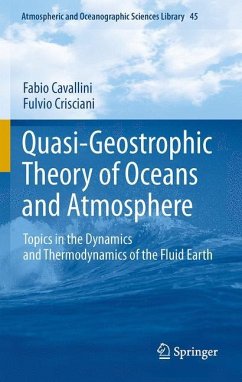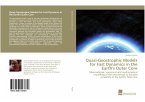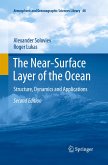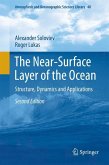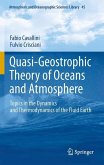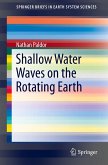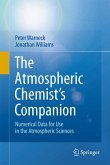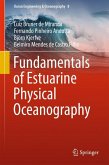Large-scale winds and currents tend to balance Coriolis and pressure gradient forces. The time evolution of these winds and currents is the subject of the quasi-geostrophic theory.
Chapter 1 presents concepts and equations of classical inertial fluid mechanics.
Chapter 2 deals with the equations of thermodynamics that close the governing equations of the fluids. Then, the motion is reformulated in a uniformly rotating reference frame.
Chapter 3 deals with the shallow-water model and the homogeneous model of wind-driven circulation. The chapter also describes a classical application of the Ekman layer to the atmosphere.
Chapter 4 considers the two-layer model, as an introduction to baroclinic flows, together with the concept of available potential energy.
Chapter 5 takes into account continuously stratified flows in the ocean and in the atmosphere.
Chapter 1 presents concepts and equations of classical inertial fluid mechanics.
Chapter 2 deals with the equations of thermodynamics that close the governing equations of the fluids. Then, the motion is reformulated in a uniformly rotating reference frame.
Chapter 3 deals with the shallow-water model and the homogeneous model of wind-driven circulation. The chapter also describes a classical application of the Ekman layer to the atmosphere.
Chapter 4 considers the two-layer model, as an introduction to baroclinic flows, together with the concept of available potential energy.
Chapter 5 takes into account continuously stratified flows in the ocean and in the atmosphere.

